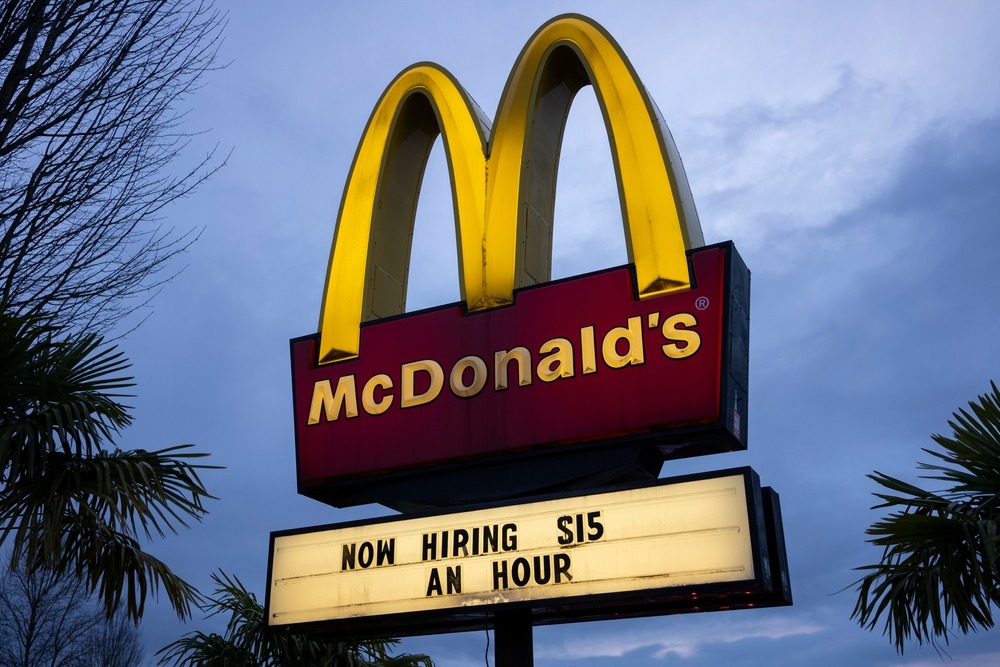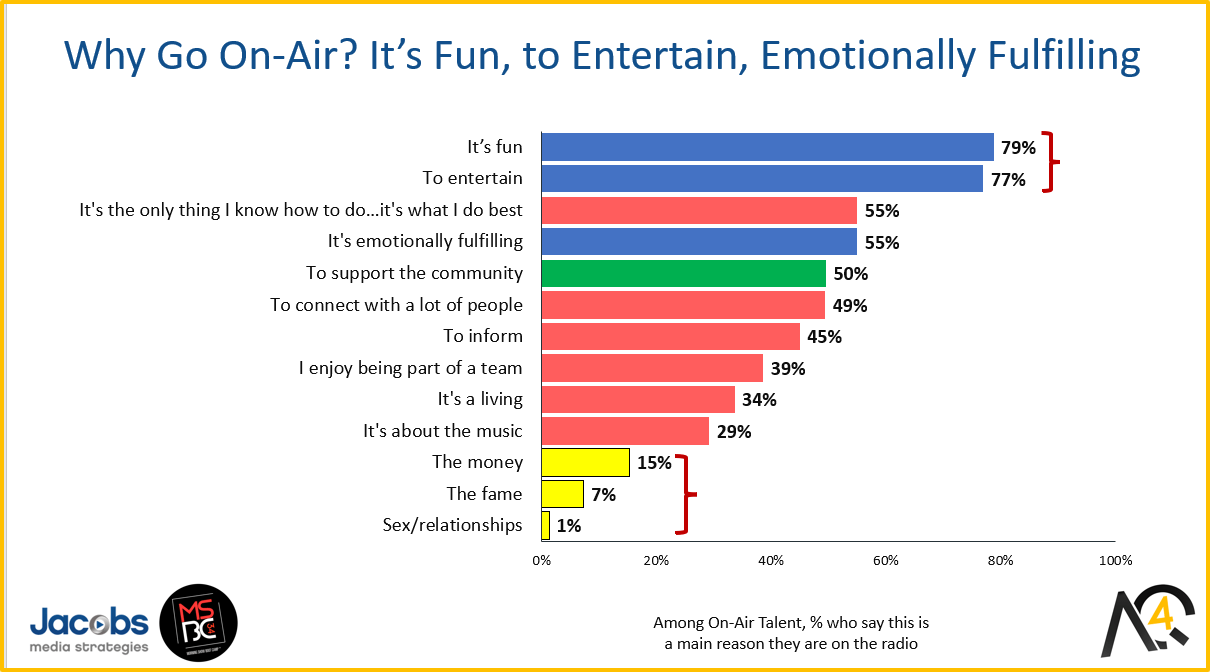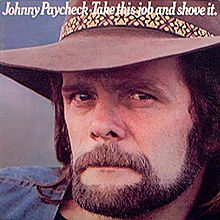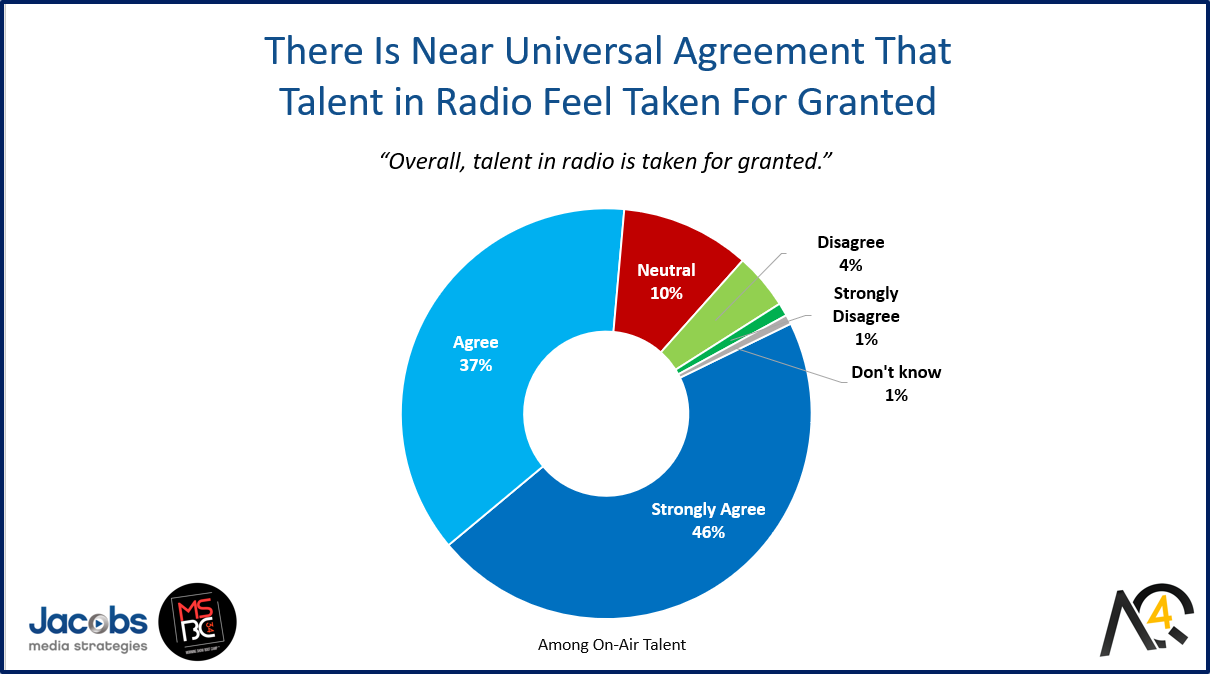
Back at Michigan State in the early ’70s, I have to confess: I wasn’t sleeping well.
What was keeping me up at night? I was angsty about how I was going to break into the radio business. I knew that first job out of school wouldn’t pay well (it didn’t – $11,000 a year), and I knew I might have to move to an undesirable place (I did – Cedar Rapids, Iowa). But the truth is, I would’ve taken even less money and a smaller town in exchange for an open door to a radio career.
Back then, I had a lot of side hustles going (we didn’t call them that), most of which I did for free or very little. I remember my Dad asking – respectfully – if I was ever going to get paid for my work. I told him all the effort and “sweat equity” would pay off down the road (it did). But deep down, I wasn’t exactly sure either.
As you might imagine, there were lots of jobs in other professions that paid a lot more, located in cities you’ve actually heard of. My Dad even dangled out a partnership in his company to me, and later Paul and Bill. But it wasn’t a job in radio. Thus, a non-starter. I was prepared to starve or work for less at least until I reached 30 before even considering moving to my Plan B (there wasn’t one). Many of us radio aspirants loved music (and still do) or had a penchant to work in the sports or news and information wing of a station. Radio offered the promise to make a living in those areas. The thinking was once you got your foot in the door, the sky was the limit.
And I know I’m speaking for a lot of you who were in a similar boat. You simply wanted your shot at the radio business.
Even today, our AQ studies conducted among air talent in collaboration with Don Anthony’s Morning Show Boot Camp reveal that while money, fame, and other perks are highly desirable, most are in it for the love of the game: to have fun and to entertain people. All the other stuff is….well, the other stuff.

But now things have changed – radically.
You can chalk it up to many things – a radio business increasingly out-of-synch with the entertainment needs of young people, and of course, the “great reset” – COVID, and the reckoning of financial meltdowns in both 2008-09 and last year.
But for many Millennials and Gen Z’s, the bloom fell off the radio rose a long time ago – if there ever was a time this industry may have been appealing to them. And as most of us have become increasingly more focused on our finances during this turbulent period, a career in radio broadcasting may not look so good. There’s a reason why schools that once specialized in training young people for radio jobs have either shut their doors or gravitated to teaching video or even IT skills.
Last year, Jacobs Media conducted a research study among radio and TV station executives for the Michigan Association of Broadcasters. The goal was to ascertain the needs and concerns of their members over the coming year. We started with Zoom focus groups among broadcasters from all around the state, big markets and small, the UP and “the Mitten.” We then followed it up with a quantitative survey in which 80 broadcasters took part. It was conducted last March. While several issues were mentioned by significant portions of their membership, you can see the major concerns that rose to the top for a plurality of Michigan broadcasters:

The six issues highlighted in red are mentioned by at least four of every ten broadcasters as “significant challenges.” And they all revolve around these familiar themes: the industry’s image among young people in the state, attracting qualified new employees, and of course, compensation. And a heads up to the MAB and its President/CEO, Sam Klemet, for having the vision and foresight to conduct this study, sensing the year ahead – at a minimum – would prove to be arduous.
This same issue was recently tackled in an article in Nieman Lab by Lyz Lenz (ironically, a former columnist for The Cedar Rapids Gazette). “Media’s money problem” focuses on the sad issue that compensation (salary and benefits) is often better today at fast food restaurants than at local TV and radio stations.
And while flipping burgers may not be glamorous, for many young people, neither are the long hours or multitasking duties most broadcasting jobs offer – for the same or less pay.
Lenz’ focus is on a Syracuse University journalism prof, J. Elliott Lewis, who took to Twitter to publicize this conundrum earlier this year:
The Five Guys on the Syracuse University campus is hiring, and they’re paying $17.85 per hour. That works out to $37K per year. Attention local TV station managers: If you are looking to hire our graduates, are you paying better than Five Guys? pic.twitter.com/IXnbNqHHdf
— Elliott Lewis (@NewUrbanBlend) January 27, 2023
And let’s not forget the message at the bottom of the Five Guys sign:
“Plus free meals per shift!” That’s an offer that may be too good to refuse.
Lenz points to salary transparency and equal pay as potential ways to remedy the compensation disparity. But Professor Lewis sees it more pragmatically – broadcasters need to pay more at a time when the economic pressure is unprecedented.
Fellow blogger, Dick Taylor, touched on a number of these issues in his post yesterday, “Take This Job & Shove It.” Dick pointed out a cavalier attitude toward employees isn’t just a radio (or TV) problem – even higher education executives often act this way toward their underlings.
higher education executives often act this way toward their underlings.
Maybe so, but broadcasters have been especially guilty of treating employees like “cogs” in their systems – or even fast food workers. But that ship has sailed. We are in a period where, at least for the time being, the American economy is close to full employment. The power is in the hands of job seekers in most industries.
Except radio. We continue to fire people at a time when we not only need smarter and more qualified young talent than ever, but also traditional broadcasters who can keep it all running. Still, radio managers add more responsibilities to their current employees’ job descriptions, often for little or no added salary or benefits.
 Where’s the breaking point? When do today’s veteran radio staffers burn out, get fed up, and simply walk away from a business they once loved? And at what juncture does management and ownership realize that in order to attract talent, they will have to review their compensation practices?
Where’s the breaking point? When do today’s veteran radio staffers burn out, get fed up, and simply walk away from a business they once loved? And at what juncture does management and ownership realize that in order to attract talent, they will have to review their compensation practices?
Clearly, “money talks.” And more and more, American workers and family members have been forced to take stock of their finances and their futures.
But it’s also about a sense of appreciation for the people who have been the backbone of the industry, who kept their stations on the air through the pandemic, and who will be the ones that successfully help the industry make the transition to a digital future?
Last summer in our AQ4 study, conducted among 700 personalities and hosts working in commercial radio in America, we inquired about how they feel treated by their management and ownership:

These numbers don’t require closer analysis from me. And you don’t need to be skilled in market research to interpret this pie chart. It speaks for itself.
It’s going to take radio broadcasters more than just handing out “atta boys/girls” and award plaques to win back the hearts and minds of its own employee base. But that would be a good place to start.
There is no longer that long line spiraling out the door of smart, educated, hard working young people who want to work for our radio stations. It is impossible to know how many radio “lifers” threw in the towel during these past few difficult years. Even with all the RIFs, downsizing, and terminations, it is still hard to find qualified people to keep the industry strong, healthy, and innovative.
Author Stephen King is credited with writing one of my favorite slogans, a twist on the old standard: 
“Money talks, bullshit walks.”
It’s more honest than that framed mission statement collecting dust on the front lobby wall.
In fact, put it up on the marquis so everybody can see it.
Special thanks to Sam Klemet and a high-five to the MAB.
- Media And Technology In 2025: Believe It Or Not! - April 18, 2025
- In Radio, You Just Never Know - April 17, 2025
- The Secret To Making A Great Podcast (And Great Radio) - April 16, 2025




So true Fred. Thanks for bringing some light to this. My first job in radio sales paid $9,000 per year in 1990. Sure there was the promise of commissions but in my year there I was never able to cross the commission threshold. Some of that was due to my lack of skills as a sales person but some of it was due to challenges at the station. I started to look for part-time gigs and mentioned it to the station’s owner. He gave me a $3,000 raise if I promised not to work at McDonalds. It just wouldn’t be a good look for the station. In this day and age broadcast jobs probably should start at $20/hour minimum with the potential for growth. Someone recently said to me that $15/hour is the new $7.50/hour. They probably aren’t wrong.
Keeping up with the times – whether it’s Spotify or McDonald’s is all part of the discipline radio operators should follow. Thanks for the comment. And I learned you were once in sales – I did not know that. (I was, too.)
Fred, you hit the nail on the head, as usual. My first gig while at Delta College in ‘73 was at WKNX up in Saginaw for $2.65/hr doing the Sunday AM god squad, then promoted to evenings…and it was a day timer, so we signed off at sunset! That led to AM drive, then home to Detroit at Magic 95 twice, a PD stint in Phoenix and TM in Dallas, Drake Chennault, Jones, and Westwood One running the Format biz there. I did what I set out to do when I was 10 years old and got my first portable tape recorder. It seemed everyone I knew in the biz had a similar story. Young people now don’t even think about radio as a possible career. They aren’t exposed to it, nor are their friends. Changing that will require the industry present these opportunities as viable career options. After being downsized out of my Sr VP/GM role at WW1 when Cumulus acquired the company, I realized the business had left me, not the other way around. Now I work as a Product Specialist for a BMW dealer, with a sales force consisting largely of Gen Y and older Gen Z’ers, all with the opportunity to earn $100k+ fairly quickly, while their first few weeks are spent in training. Our Dealership group is involved in the community more so than most of the radio stations in Denver. Radio must take this seriously and not wait for people to just drift through the door. Nobody knows where the door is, or that it even exists.
Your comment about community involvement from the dealership level hit home with me, Phil. And yes, I hope the industry takes this seriously. I DO see the door.
Walking into my local Kroger on Saturday and noticed a “hiring” sign and an hourly wage of $18 per hour. $37,440 per year…….at KROGER! Similar to your example. Gen-Z, more than any other generation, wants to be valued for what they do (Having a 24-year old working daughter has taught me that!!). We can all say what we want about hard work and paying dues, etc. but if we are going to “fish where the fish are” to grow our business, we definitely need to hold in high regard and importance what these young folks want and need.
Good comment, John. (Hey, is that Kroger gig still open? Asking for a friend.)
Good article Paul.
I offer two thought starters.
Are you going to pay the least amount you can get away
with or pay an above average wage to attract/retain the best and brightest?
Are you going to cut costs and protect your lifestyle or invest in your people and improve their lifestyle ?
The market is fair. Every broadcast owner / leader has a choice to make. And an outcome to live with.
Good luck.
Duane, you laid out the choices clearly. Decisions, decisions.
Last week, Futuri announced it’s beta testing RadioGPT with Alpha media stations. It not only generates content, it turns it into voice. And it creates social media content relevant to radio programming. We’re all going to have to step up our game and out-create HAL 9000.
Well, maybe I’m glad to be laid off from Alpha after 26 years at one of their acquired stations. They laid off at least 5 of their most vibrant, local on-air people in the past year.
And radio companies probably wouldn’t even have to pay all that much to get younger people to work there, if they were creating programming they could relate to. At some point – and we may have already reached it, no matter how good and relevant content is, 20-30 somethings may not embrace if BECAUSE its on the radio.
Someday radio will make a great B-School case study.
Agreed. If radio was offering something that excited and interested young people, those younger people would be more excited and interested in it regardless of the pay. Not that pay doesn’t matter, but maybe you should address the first problem without neglecting the second.
Ooh…your last line. See my comment to Greg Penglis about twentysomethings programming radio stations.
And, Fred, you probably know that Stephen King owns 3 radio stations up in Bangor–and that he’s definitely not in it for the money! I hope that means he pays his staff above scale.
We can only hope!
The line near the end, “Even with all the RIFs, downsizing, and terminations, it is still hard to find qualified people to keep the industry strong, healthy, and innovative,” might just as easily read, “BECAUSE of all the RIFs, downsizing, and terminations, it’s hard to find qualified people to keep the industry strong, healthy, and innovative.”
David, I think that’s right. In the past, they would have dusted themselves off, and would hop right back on the horse. It’s a different radio businesss today.
What made radio magic was when you were driving and the DJ played the exact song you wanted to hear, right then. DJ’s were live, they picked the songs, they took requests, they cued up the turntable, and made it happen. There were no machines, or pre-programmed anything. Now it’s all done on a computer. Same thing with talk shows, which were live also. But now with podcasts they could have been made anytime. In both cases the magic of live and therefore the connection, is gone.
Younger folks don’t care so much about live, or the connection between the host or DJ and them while they are listening, because their choices are infinite and live is rare. So what has changed is the difference between action movies and video games. That difference is interaction. For younger folks the difference isn’t between a live connection and them, it’s between interaction and no interaction. So if radio wants the next generations to listen, they have to allow them to participate.
That’s what I recognized when I created the Action Radio Citizen Legislature.
Greg, I agree – young people need to participate. When I was a PD, most of my contemporaries were in their twenties – today’s Gen Z’s. Wonder what radio would sound like if they were programming most of the station in the US.
It seems as if radio is “so 20th century”, and is losing its relevance; technology is simply passing it by. There’s just too many options for entertainment now, and digital continues to grow in both content and bandwidth. Don’t get me wrong there’s still a lot of great radio out there, it’s just that it’s voice is getting lost in the mix. It’s quite sad 🙁
It is sad. I would say most media are enduring the same thing, but it’s especially difficult for a traditional platform like broadcast radio. Thanks, Dave.
February 1978 I landed my first paying radio job at WCOD on Cape Cod. Board op on Sunday Mornings. A few weeks later I got a note from the PD telling me my pay was going up to $3.00 an hour. I figured it was because they valued me, and I was doing a good job. Then I read that the state was upping the minimum wage to $3.00 an hour! 45 years later, and I’m still in it. On the news side, but still in radio.
You have a lot of radio people nodding along with you, Steve. Most of us started at the minimum. Thanks for chiming in.
Another great read, Fred.
Pay for PROGRAMMING is indeed a problem in radio. I think the pandemic and the employee shortage HAS made a bit of a difference in the pay rate, however, the programming side is still grossly undervalued. There have been little strides where I work, and we appreciate it. It’s still perceived as a burden on the budget. It’s the general feeling given when talking about getting programmers that money. We’re talking $400 a month.
Then, you see the uppers going all out on getting someone in sales, with 5 years of experience, a $100,000 a year SALARY when the programmers are almost all around $40,000 and have 25-40 years of experience each. It’s not a burden to pay sales six figures PLUS bonuses that are more than my monthly salary. (The last one I heard my GM panicking about was a $1,900 bonus for a salesperson. That’s a hell of a bonus.)
I know, it sounds like jealousy, but I’m talking about prioritizing the budget for the long haul. YES, a good salesperson is very valuable. But so are good jocks. Jocks that have worked in this market for decades. Jocks that put in 9-10 hour days and never say boo. You and I both know that salespeople come and go. Sure, there are SOME lifers, but that ship is slowly sinking as well. They come and go in literally WEEKS now. In the 5 years at my current station, only one salesperson has been here the entire time. On the flip side, we’ve only turned over one jock.
Prioritizing.
One last note, atta boys don’t buy groceries. Yes, they are nice, and we went years without them. But, at the end of the day, nothing says I value you and your contribution like a decent wage.
Tammie, I am not surprised to get a comment for you on this post. You stories from the trenches are always thoughtful and grounding. As for the disparity between what salespeople and programmers are paid is as old as Marconi – and still an argument worth having. As I think many PDs have learned, when you directly add money to the bottom line, companies are going to pay for it. I know, I know. DJs and PDs bring in revenue, too, in the form of ratings. But it’s not the same. I think some awfully great PDs – among them, Chuck du Coty, Tom Bender, Bob Bellini, Ed Levine (an owner!), John Gehron, among them, who made tthe transition to upper management. As always, I appreciate the comment – and hang in there.
I’m a lifer and hanging on as a contractor tracking Classic Rock ❤️ out of town for $. I made it 26 years at my last station, surviving several format and company changes. Now, as I celebrate 50 years on air, I feel fortunate to have a daily gig, so many of my bright, hardworking colleagues, mostly younger, have been culled from their jobs. Many do internet shows for free/love of being a DJ. My son/producer-tech is urging me to podcast….
Jona, in this business and in these times, you have to scrap your way to some semblance of stability. Congrats on your long run on the airwaves. As for younger people who aspire to be on the radio, the future’s not so clear.